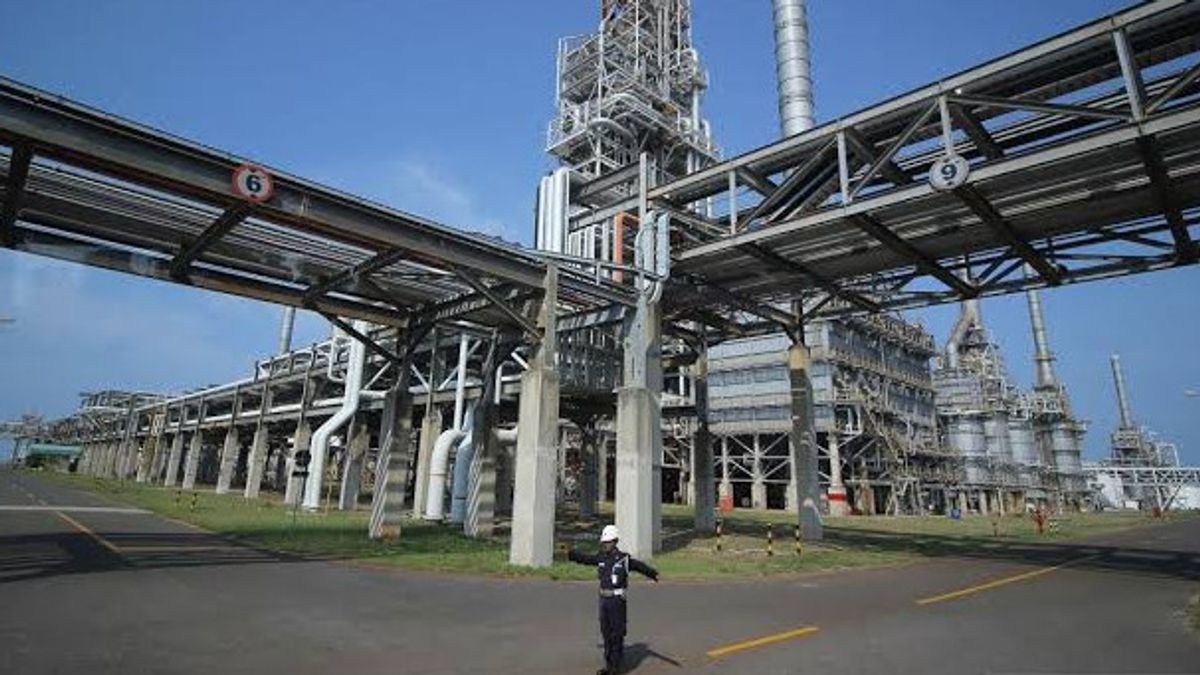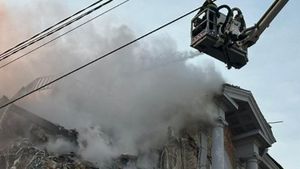JAKARTA - In the October 2024 edition of the East Asia and Pacific Economic Update, the World Bank projects Indonesia's economic growth of 5.0 percent in 2024 and 5.1 percent in 2025.
A number of projections for economic growth illustrate that Indonesia is still better than the growth rate of the Asia Pacific region. The regional growth in general is estimated to be around 4.8 percent in 2024 and slow down to 4.4 percent in 2025.
Meanwhile, under the leadership of President-elect Prabowo Subianto, the Government set an 8 percent economic growth target, which is in line with the Government's vision to accelerate infrastructure development, increase investment, and encourage national strategic sectors.
However, if it is not supported by good governance and regulations, President Prabowo's optimistic efforts to achieve the growth target of 8 percent are impossible to realize.
Looking back, the projections surrounding Indonesia's economic conditions are actually not completely fine. For example, the labor-intensive manufacturing sector is facing heavy pressure that has an impact on increasing Employment Termination (PHK).
During the first semester of 2024 alone, it was recorded that 32,064 workers were laid off, up 21.45 percent compared to the same period the previous year.
The manufacturing sector worst experienced mass layoffs, namely the textile and textile product (TPT) industry. In the last two years, 30 textile factories have been closed. The closure of the plant caused more than 11,000 people to lose their jobs. This weakening is confirmed to extend to other sectors such as Petrokimia which has an impact on the decline in demand for aromatic raw materials for the textile industry.
According to the Association of Indonesian Olefin, Aromatics and Plastic Industries (Inaplas), the weakening of the textile industry will definitely have an impact on the performance of the petrochemical industry.
"This is because the petrochemical industry has an important role in supporting various sectors, ranging from plastic, textiles, synthetic rubber, cosmetics, cleaning materials to pharmaceuticals. Moreover, the aromatic derivatives are currently absorbed by the textile industry more," said Secretary General of Inaplas, Fajar Budiyono at the Indonesian Business Forum discussion event: Support from the New Government Genjot Manufacturing Petrokimia, last Thursday, November 21.
Currently, it is estimated that the petrochemical industry is facing a 50 percent decline in factory utilization levels. The investment potential of IDR 437 trillion in the petrochemical sector is also threatened with stagnation due to domestic market chaos, adding to the challenges for national economic recovery.
In addition to the penetration of imported goods, the upstream petrochemical industry is still unable to realize investment due to policy uncertainty. There are policies that are expected to be able to support performance, including incentives for natural gas prices to certainty of fiscal incentives in the form of tax holidays which have not been officially ratified recently.
The condition of decrease and uncertainty of petrochemicals is exacerbated by the decline in the textile industry, as an upstream product absorber. The utilization of the textile industry is now below the 50% level, in fact, many have closed its factories. This is proven, confirmed from the receipt of VAT on textiles in 2023 and 2024, it has decreased slightly in terms of value of the rupiah," he said.
On the other hand, Secretary General of the Indonesian Downstream Plastic Industry Association (Aphindo), Henry Chevaller, also asked the government to provide tax freedom for the upstream petrbokia industry so that downstream raw materials can be more affordable.
"Give free tax to the petrochemical industry so that we can absorb cheap raw materials and create cheap plastic products so that we can compete with finished products that enter Indonesia," said Henry.
On the same occasion, the Associate Expert for Downstream Oil and Gas at BKPM, Ikhsan Adhi Prabowo, acknowledged that the important role of the petrochemical industry is worth saving. He hopes that from all existing policies, it can stimulate the presence of new petrochemical investments.
"Petrochemicals are one of the industrial women, because their products are the raw material for other industries. The potential is still wide open, they must be utilized," he said.
On this occasion, the Director of Chemical Upstream Industry at the Ministry of Industry, Wiwik Pudjiastuti, said that the government continues to pursue strategies so that the petrochemical industry situation can be more conducive. To monitor imported products, for example, the government is finalizing commodity balance instruments.
"If we can see the balance of commodities, we will always see by supply data and demand, if the supply is low, the demand is lower, meaning that there is still potential for imports," said Wiwik.
This system is needed because petrochemical products and their derivatives are still dominated by imported products. In fact, the domestic petrochemical industry is struggling to strengthen the supply chain of production.
According to the Ministry of Industry's records, national petrochemical products include olefines that have a production capacity of 9.72 million tons, while aromatic products 4.61 million tons, and methanol C1 products and their derivatives are 980,000 tons.
"For strengthening the industrial structure, one of the things that needs to be strengthened is to integrate the upstream and downstream industries," he said.
Moreover, Wiwik sees plans for a chemical industry project with investments reaching 34 billion US dollars by 2030. Nearby, investment from PT Lotte Chemical Indonesia or Lotte and Petrokimia Gresik can operate in 2025.
"The hope is that with the operation of Lotte in 2025, this means that some of the petrochemical needs, especially polypropylene [PP], which is still far from supply, can fill local demand, which is currently still being met by imported products," he said.
Furthermore, Wiwik explained that the government had made efforts to propose the exemption of import duties for petrochemical raw materials, especially LPG, which is currently subject to a fee of 5 percent.
On the other hand, his party is also making a roadmap for the basic chemical industry by deepening and compiling oil, gas and coal-based industrial trees. Not only that, to provide convenience for the chemical industry, the government has provided fiscal incentives in the form of easy tax holidays, tax allowances, and mini tax holidays, as well as an extension of the VAT credit period.
In line with the Ministry of Industry, the Directorate General of Customs and Excise at the Ministry of Finance, Susila Brata, also said that her party had implemented various regulations to protect industry in Indonesia, including the upstream and downstream petrochemical industries.
Susila said that the government had set a trade remedies for now.
"Traded remedies is an instrument that can be used by WTO member countries to control the importation of goods in order to protect domestic producers from the negative impact of free trade," he said.
The English, Chinese, Japanese, Arabic, and French versions are automatically generated by the AI. So there may still be inaccuracies in translating, please always see Indonesian as our main language. (system supported by DigitalSiber.id)













